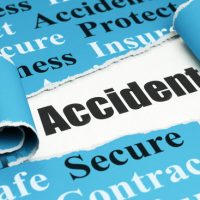What Not to Do Following an Accident

The time immediately following any type of accident is stressful and often traumatic. When the accident involves any type of physical injury, those involved must receive emergency medical treatment, contact family members, and often endure debilitating pain. Even when no major injury occurs, individuals at the scene of an accident are pressed to record valuable evidence, talk to first responders, and cope with the loss of personal property. During this busy period many people become overwhelmed and inadvertently make a mistake that later hinders their personal injury claim.
Do Not Admit Guilt
Not admitting guilt might seem like common sense advice, but people forget that most adults are taught to be conciliatory in unpleasant situations. Unfortunately, the instinct to console the other party could be interpreted as an accidental admission of guilt.
After an accident , doing something as innocuous as saying “I am sorry” to the other party could be interpreted as an admission of guilt.
A savvy claims adjuster may argue that no one apologizes unless they feel they did something wrong. Also, in an effort to make a seemingly guilty party feel less burdened one might say that they should not have done some action prior to the accident. This type of statement might also be construed as an admission of guilt. No matter how upset the other party is, it is important that you do not say anything that could be later used against you.
Do Not Provide a Statement
Immediately after an accident the claims adjuster for the other insurance company will attempt to contact you. It is in their best interest to settle the claim as quickly as possible, often before you have even finished treatment or consulted an attorney. In an effort to expedite the claims process, an adjuster may ask you to provide a recorded or written statement. Usually they will say that without a statement they cannot not complete the claim, and in most cases they will insist on a recorded statement.
It is extremely important that you do not provide a statement to any claims adjuster without speaking with an attorney first. Though they will give the impression of working in your best interest, they might later use your words against you. For example, saying something as innocent as “I am fine” when asked how you are doing, may later be used to imply that you were not in any discomfort immediately following your accident.
Do Not Sign a Medical Release
After an accident do not provide a third party insurance company with a vague medical release. Following an accident, a claims adjuster may mail or email you a medical release telling you it is necessary for them to get access to your accident records. In reality, these releases often give the insurance company access to all of your medical records allowing them to view your entire medical history. After picking through decades’ worth of medical records, a claims adjuster might imply that your injuries were caused by a preexisting injury instead of the car accident.
Contact an Accident Attorney
If you or someone know was recently in an accident, it is best to contact an attorney who has experience handling the claims process, negotiating with insurance companies, and litigation accident claims. Contacting an attorney prior to talking to a claims adjuster is one of the best ways to protect yourself and your loved ones. Conveniently based in Clearwater, Florida the attorneys at Roman & Roman are able to provide you with the advice and assistance you need. Contact their personal injury attorneys today at 877-767-1032 to schedule your free consultation.
Resource:
libertymutual.com/masterthis/handling-a-car-accident


